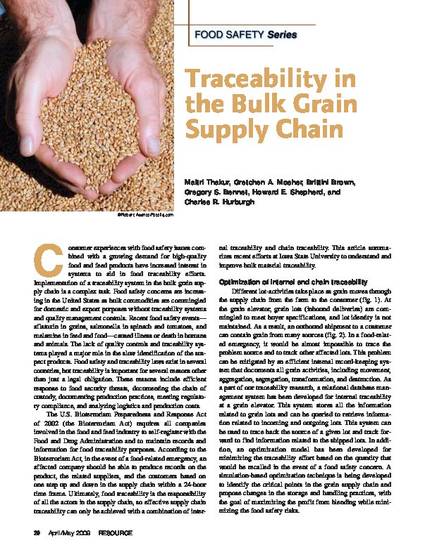
Consumer experiences with food safety issues combined with a growing demand for high-quality food and feed products have increased interest in systems to aid in food traceability efforts. Implementation of a traceability system in the bulk grain supply chain is a complex task. Food safety concerns are increasing in the United States as bulk commodities are commingled for domestic and export purposes without traceability systems and quality management controls. Recent food safety events--aflatoxin in grains, salmonella in spinach and tomatoes, and melamine in feed and food--caused illness or death in humans and animals. The lack of quality controls and traceability systems played a major role in the slow identification of the suspect products. Food safety and traceability laws exist in several countries, but traceability is important for several reasons other than just a legal obligation. These reasons include efficient response to food security threats, documenting the chain of custody, documenting production practices, meeting regulatory compliance, and analyzing logistics and production costs.
Available at: http://works.bepress.com/gretchen_mosher/21/

This article is from Resource Magazine 16 (2009): 20–22. Posted with permission.